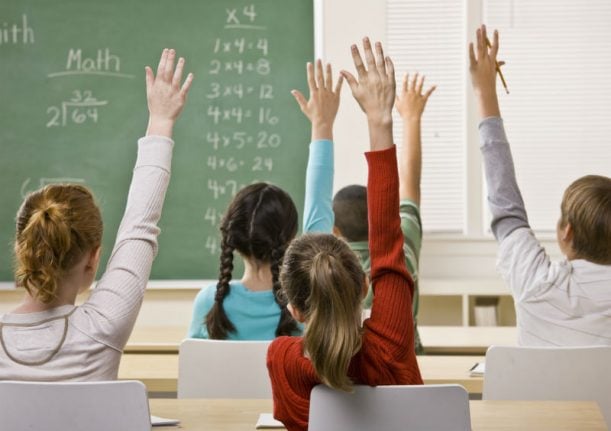The 2012 Programme for International Student Assessment (Pisa) results, issued by the OECD, showed the Swiss in ninth place for maths with 531 points, four points behind eighth-placed Liechtenstein and just ahead of the Netherlands.
The programme, testing 510,000 students in 65 countries and regions, put Shanghai, Singapore and Hong Kong at the top of the tables, ahead of Chinese Taipai, Korea, Macao and Japan.
The Pisa 2012 survey focused on mathematics, with reading, science and problem-solving as minor areas of assessment.
The Chinese region of Shanghai notched the highest score for maths — 619 points —119 points, or the equivalent of nearly three years above the OECD average.
The share of top performers in mathematics in that region amounted to 55.4 percent, compared to 21.4 percent in Switzerland and an OECD average of 12.6.
Switzerland was among 25 countries with students showing improvements in maths skills from comparable results in 2009.
In the 2009 Pisa tests, focused on reading, the Swiss ranked 14th.
“Top performers, notably in Asia, place great emphasis on selecting and training teachers, encourage them to work together and prioritize investment in teacher quality, not classroom sizes,” the OECD said in its report.
“They also set clear targets and give teachers autonomy in the classroom to achieve them.”
The Pisa report found that overall boys continue to perform better than girls in maths.
They scored better in 37 out of the 65 jurisdictions surveyed.
The gender gap is the reverse for reading and is widening, the report said.
For more on the Pisa 2012 findings, check here.





 Please whitelist us to continue reading.
Please whitelist us to continue reading.
Member comments